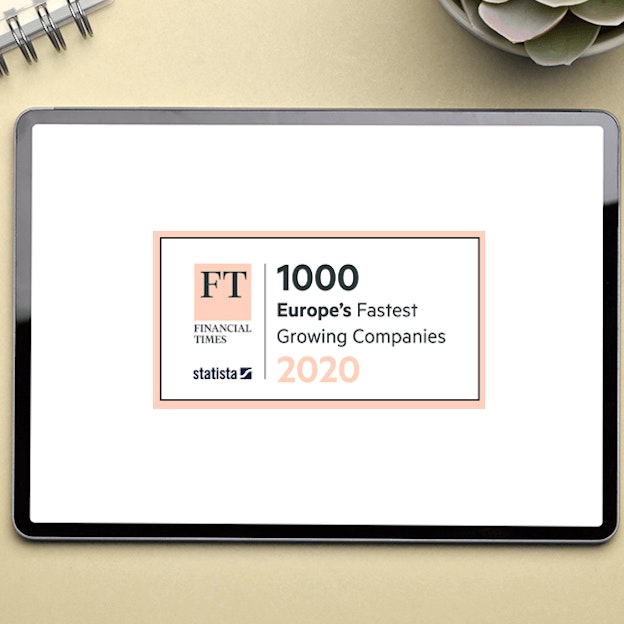RTB House, a global company that provides state-of-the-art marketing solutions for top brands worldwide, has been ranked 23rd in the tech sector in the Financial Times 1000. RTB House has made it onto the list for the third year in a row.The rating is the result of a joint project by the Financial Times and Statista, who conducted months of research, public calls, intensive database research and directly contacted tens of thousands of companies. In the end, they created a shortlist of 1,000 outstanding companies amongst the millions of existing European enterprises. The list includes companies that have achieved the highest growth in revenues between 2015 and 2018.
RTB House reached revenue growth of 1100%, which amounted to 98,7M EUR (112,9M USD) in 2018. Over four years, the number of employees has grown from 74 to 377. The company now operates in over 70 countries, working with leading brands.RTB House’s deep learning platform is considered a real game changer in the industry. After successfully deploying deep learning algorithms throughout all of its campaigns, RTB House once again challenged itself and the advertising industry through its creation of the AI Marketing Lab, a division focused on research and development in the broad marketing arena. This is separate from the main R&D department, which is dedicated to personalized retargeting. RTB House recently opened a Creatives Lab. The unit is developing solutions to offer clients a wider range of better performing dynamic banners for both display and video, which is better suited to clients’ branding needs.
More information about FT1000 can be found here.
- Authors
- Wojciech Polak
RTB House Continues Innovation and Rapid Global Expansion, Ranked as One of the Fastest Growing Tech Companies on FT1000 List
This marks the third year in a row that RTB House has been recognized as a fast-growing company.
- Last Updated:
- Published:
See our reports, articles, guides, videos, and more.
- Published:
Head-to-Head Testing vs. Incrementality Testing—Which Is Best?
Many of the world’s biggest brands choose to deploy a multiple retargeting strategy (using more than one retargeting vendor in combination) because it delivers a host of benefits like larger audiences, more efficient advertising, and a higher return on ad spend. Despite the advantages, or maybe because of them, it can be tempting for organizations to wonder exactly how much value, in isolation, each provider brings.
But is a straight comparison, as seen with head-to-head testing, a strategically sound approach, or should brands be focusing on the wider picture of true added value? Let’s investigate.
- Digital Advertising
- Published:
Principles of Driving True Incremental Revenue Lift
Performance marketing has changed, but many marketers haven't noticed. The shift to first-price auctions since 2019 has created new opportunities for those willing to challenge conventional wisdom about running multiple performance partners. The old rules about bid collision no longer apply.
Today, the path to incremental revenue growth requires a bold approach. Instead of relying on a single partner or worrying about budget cannibalization, successful marketers are discovering that multiple performance partners can work together to drive genuine incremental lift.- Digital Advertising
- Published:
The Essential Marketing and Cultural Events Calendar for 2026
Some brands spend the year building up to Q4, focusing their entire strategy on Black Friday and Christmas. However, the most savvy performance marketers know that huge sales opportunities don't just start in November.
The Marketing Events 2026 calendar features over 60 big events for ecommerce: demand-driving moments marketers can capitalize on, industry conferences for insights and networking, and cultural events that shape consumer behavior—if you plan properly. Instead of chading "brand moments," you start to understand when your audience is actively searching, comparing, and ready to convert.
- Digital Advertising
